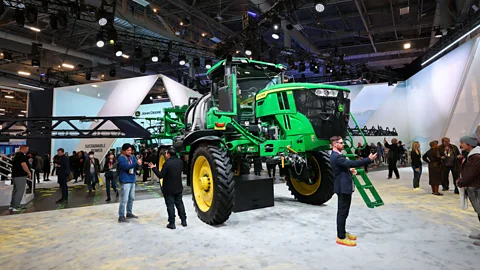
The Influence of AI on Fashion Week
As fashion weeks continue to evolve, the integration of artificial intelligence (AI) and emerging technologies is becoming increasingly prominent. These advancements are not only reshaping the creative process for designers but also transforming the overall experience for attendees. From Milan to New York, the influence of AI is undeniable, promising a future where fashion weeks are more dynamic, interactive, and efficient.
AI: A Catalyst for Creativity and Innovation
The utilization of AI in the fashion industry is revolutionizing how designers create and present their collections. According to a report by Jing Daily, AI-powered tools are enabling designers to experiment with new patterns, textiles, and styles. This technology allows for the rapid prototyping of designs, reducing the time from concept to runway.
Designers are leveraging AI to analyze fashion trends and consumer preferences, providing valuable insights that inform the creative process. AI algorithms can predict future trends by analyzing vast amounts of data from social media, fashion blogs, and consumer buying patterns. This predictive capability enables designers to create collections that resonate with their audience, ensuring relevance and appeal.

Enhancing the Attendee Experience
AI is not only transforming the creative process but also enhancing the experience for fashion week attendees. At Milan Fashion Week 2025, AI-powered chatbots provided attendees with real-time information about show schedules, designer backgrounds, and collection details. These virtual assistants made it easier for attendees to navigate the bustling event and personalize their experience.
Additionally, AI-driven personalization extends to virtual fashion shows. With the ongoing rise of digital and virtual reality (VR) experiences, AI plays a crucial role in creating immersive environments. Attendees can virtually try on outfits, interact with digital representations of garments, and even customize their virtual experience based on personal preferences.
Technology and Tradition: A Harmonious Blend
The incorporation of technology into fashion weeks does not overshadow the traditional elements that make these events iconic. Instead, AI complements the artistry and craftsmanship that define high fashion. For instance, AI can assist in fabric selection and pattern creation, but the final touches are still applied by skilled artisans, ensuring that the human element remains integral to the fashion industry.

Sustainability Through AI
Sustainability is a growing concern in the fashion industry, and AI is playing a vital role in addressing these challenges. By optimizing production processes and reducing waste, AI helps designers and manufacturers make more sustainable choices. AI-driven analytics can identify inefficiencies in supply chains, leading to more environmentally friendly practices.
The report by Jing Daily highlights how AI helps in creating sustainable fashion. By predicting demand more accurately, designers can produce only what is needed, minimizing overproduction and the resulting environmental impact.
The Future of Fashion Weeks
The future of fashion weeks is undoubtedly intertwined with the continued advancement of AI and emerging technologies. As these innovations become more sophisticated, they will further enhance creativity, efficiency, and sustainability in the fashion industry.
Fashion weeks are on the cusp of a technological revolution, with AI leading the charge. As designers and attendees embrace these changes, the industry can look forward to a future where fashion is more innovative, inclusive, and sustainable than ever before.
For more on how AI is influencing fashion weeks globally, check out this detailed analysis from Jing Daily.